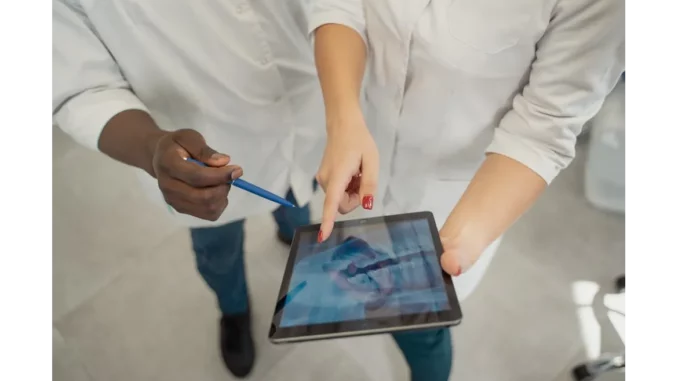
Meeting Dr. Amirul Hassan in a lively café in Kuala Lumpur provided a unique opportunity to explore the ambitious collaboration between CelcomDigi and Universiti Malaya. This partnership, which spans three years, aims to revolutionise the Malaysian healthcare industry through the integration of cutting-edge technologies such as 5G, Artificial Intelligence (AI), and Extended Reality (XR). As a journalist passionate about innovation, I was eager to uncover the potential impacts of this transformative initiative on the healthcare landscape.
Dr. Hassan enthusiastically detailed the project’s expansive scope, which seeks to make healthcare in Malaysia more accessible, efficient, and personalised. “This partnership represents a significant leap forward,” he commented, sipping his coffee. “By integrating 5G, AI, and XR, we’re not merely enhancing surgical precision or improving access to care; we’re fundamentally redefining how healthcare is delivered and experienced.” The integration of these technologies promises to bring about significant advancements in both medical practice and patient care.
A landmark development in this journey is the introduction of HoloMedicine at Universiti Malaya, marking it as the first healthcare institution in Malaysia to adopt such innovative technology. HoloMedicine employs 3D holograms to assist surgeons in visualising intricate anatomical structures, potentially improving surgical outcomes and reducing operation times. Dr. Hassan elaborated, “Imagine a surgeon being able to manipulate a 3D hologram of a patient’s organ in real-time during a procedure. This unprecedented level of detail and interaction will undoubtedly lead to more precise and successful surgical interventions.” This technology’s capability to transform medical education is equally promising, offering students and professionals immersive learning experiences that bridge the gap between theoretical knowledge and practical application. Such an approach equips future medical practitioners with the confidence and skills necessary to address complex medical cases.
Beyond the operating theatres and lecture halls, the benefits of this partnership extend to the broader healthcare system. The integration of 5G and AI is expected to enhance the overall patient experience, making healthcare more personalised and efficient. High-speed 5G connectivity will facilitate remote expert consultations, enabling patients in rural or underserved areas to receive timely medical advice without needing to travel. “Access to healthcare should not be a privilege but a right,” Dr. Hassan emphasised. “By leveraging these technologies, we’re bringing expert medical care to those who need it most, no matter where they are.” This approach underscores the potential of technology to democratise healthcare access, bridging gaps and ensuring that quality care reaches even the most remote communities.
The personalisation of healthcare is another crucial aspect of this initiative. AI-driven data analytics offer insights into patient health, allowing practitioners to tailor treatment plans to individual needs. “Every patient is unique, and their care should reflect that,” Dr. Hassan noted. “With AI, we can move towards truly personalised medicine, where treatments are customised based on a patient’s genetic makeup and lifestyle.” This shift towards personalised medicine signifies a move away from one-size-fits-all approaches, offering treatments that are more effective and aligned with individual patient profiles.
As our conversation came to a close, I was inspired by the potential of this partnership to transform Malaysia’s healthcare system. Dr. Hassan’s insights painted a vivid picture of a future where healthcare is not only more advanced but also more inclusive and patient-centred. This collaboration between CelcomDigi and Universiti Malaya represents more than just a technological advancement; it is a bold step towards a healthcare system that empowers future medical professionals and enhances the quality of life for all Malaysians. By embracing the possibilities offered by 5G, AI, and XR, Malaysia is setting a benchmark for healthcare innovation, potentially serving as a model for other nations worldwide.
Reflecting on our conversation, I contemplated the profound impact that such a forward-thinking initiative could have on the global healthcare ecosystem. Dr. Hassan’s words resonated with me, reinforcing the notion that with the right tools and vision, the future of healthcare is bright and filled with promise. This partnership exemplifies how strategic alliances and technological innovation can drive meaningful change, heralding a new era in healthcare that prioritises accessibility, efficiency, and personalisation.


Be the first to comment